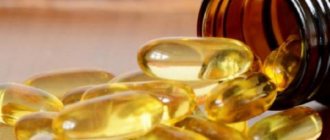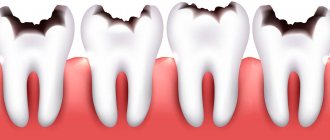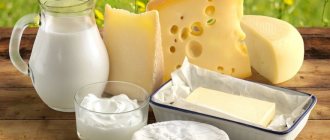About milk
What kind of milk is there, the benefits and harms of milk for the human body, and does it have any medicinal properties? These questions often arise among those who care about their health and show interest in traditional methods of treatment. And this interest is understandable. Maybe in this article, to some extent, you can get an answer to these questions.
So here it is:
Milk and other products made from it are a large and integral part of the human diet in all corners of the earth without exception.
Milk was known and appreciated in Ancient Rome and Greece, Egypt and Asia. It was called the source of life and health, “white blood” and, in terms of its usefulness for the human body, was placed on a par with honey, snake venom, fresh fruits and vegetables. Milk was used to treat various diseases, ranging from diseases of the lungs, stomach and nerves to scurvy, obesity and gout and even cholera.
According to the Holy Vedas, milk is the only and unique product in the universe, which has a positive effect not only on a person’s physical health, but also on his spiritual improvement!
The very first food of a newborn baby is mother's milk, and only that! But only man, the only one of all mammals (!), continues to remain so until his death and consume milk not only in early childhood, but throughout his entire life!
Why don’t animals drink milk when they become adults, but we continue to do so? Why do some people drink milk with great pleasure, while others cannot stand it? What is actually more in milk - benefit or harm to our body?
The benefits of milk
Since childhood, our mothers and grandmothers taught us to drink cow's milk, because it is so nutritious and healthy! What does it consist of and what exactly makes it such an indispensable product?
So, the composition of milk:
- fats
- carbohydrates (lactose)
- proteins (casein, albumin and globulin)
- vitamins
- minerals and mineral acids
It is believed that half a liter of milk contains all the nutrients a person needs for the whole day. All components of milk are well balanced and easily absorbed by our body.
Scientific studies of milk have shown the presence of more than 200 components in it, including 25 types of fatty acids, 20 amino acids, 30 mineral salts and about 20 types of vitamins.
Milk fat serves as a source for energy production in the human body. It has a low melting point (28–35 degrees) and thanks to this it enters our stomach in liquid form, and therefore is well absorbed. It contains almost all fatty acids, including the most valuable ones - arachidonic, linolenic and linoleic acids, phosphatides, as well as vitamins A, D, E and K. In addition, milk contains a fairly large amount of essential vitamins such as B1, B2, B6, B12, C and PP.
Milk also contains biologically active elements such as antibiotics and antibodies, hormones and enzymes.
So, why is milk good for us?
- Vitamin A is needed for good vision and healthy skin;
- Vitamin D helps our body absorb phosphorus and calcium and is necessary to maintain healthy bones and teeth;
- B vitamins prevent stress and depression, increase performance and relieve fatigue, and also fight acne and dandruff;
- Folic acid contained in milk is essential during pregnancy and helps maintain a healthy complexion and good muscle tone for a long time;
- the amino acids phenylalanine and tryptophan, which are part of milk, have a sedative and mild hypnotic effect;
- Lactose contained in milk is less sweet than sucrose. It stimulates our nervous system, improves cerebral circulation and is both a preventive and therapeutic agent for various types of cardiovascular diseases. When digested, lactose produces lactic acid, which has a bactericidal property and also improves the body's absorption of calcium, potassium and phosphorus, which have a beneficial effect on the musculoskeletal system;
- the metabolic process helps control cobalt, which is also present in milk;
- globulin contained in milk increases immunity and has the ability to successfully fight various types of infections;
- Milk reduces the acidity of gastric juice and thus can serve as a remedy for heartburn.
It is best to drink milk in small sips at room temperature or slightly warmed.
When milk is digested, fermentation processes take place in the stomach; if milk is boiled, there will be no fermentation and it will hardly be digested.
When milk is boiled, many active substances are destroyed, in particular vitamin C, albumin and globulin, which significantly reduces its beneficial properties.
The daily dose of milk for an adult is 250–400 ml.
The dark sides of white milk - how can it harm your health and why?
In the recent past, they were considered an obligatory part of the children's diet and had an impeccable reputation, but today they are subject to disgrace. The composition of whole milk remained the same, so why did it suddenly become dangerous for everyone except babies? And all because scientists have established: the harm of milk and dairy products is incomparable with the health benefits, and their use is unnatural for a person beyond infancy. This is what dairy products are accused of.
The five most dangerous consequences of drinking milk:
- Disrupts the digestion process. Since it contains lactose, in the absence of the lactase enzyme in the human body, it can cause bloating, abdominal pain, and diarrhea.
- Harmful to the heart. One glass of this product contains 10% of the daily dose of cholesterol. Drinking more than this norm per day, a person runs the risk of developing atherosclerosis, which can lead to a stroke or heart attack.
- Lashes out calcium. Since milk is rich in protein, it requires a lot of acid to break it down. This leads to a shift in blood pH to the acidic side. To compensate, the body is forced to use calcium reserves contained in the bones.
- Destroys the kidneys. Again, protein is to blame for this. The release of acid, which is necessary for its processing, injures the kidneys and can completely destroy them.
- Can provoke the development of type 1 diabetes. If you drink milk from childhood, then casein will constantly enter your body. Our immune system regards it as an antigen and begins to actively produce antibodies to neutralize it. This may result in the appearance of an autoimmune disease.
And this is not all the potential harm of dairy products. Lovers of cottage cheese, fermented baked milk, yogurt and milk may encounter other unpleasant consequences from consuming such “delicacies”.
Negative effects of dairy products on the body:
- cause allergic reactions;
- provoke the accumulation of mucus;
- increase the likelihood of developing sclerosis, arthritis and osteoporosis;
- promote the formation of kidney stones;
- cause rhinitis, headaches, chronic fatigue;
- increase the possibility of contracting a respiratory infection;
- can lead to obesity;
- have a bad effect on bones and teeth;
- disrupt the functioning of the respiratory system (and even provoke asthma);
- worsen the appearance and condition of the skin.
On a note! Evidence has emerged that dairy products may even increase the risk of cancer!
The harm to health of milk and dairy products is also due to the fact that to increase its production, animals are given synthetic hormones. The presence of such additives in the diet of cows negatively affects their health, leading to the development of inflammatory processes in the mammary glands of animals.
For treatment, they are given antibiotics, which then end up in dairy products. Thus, along with a glass of store-bought milk, a person also drinks a portion of antibacterial agents, which does not have the best effect on his well-being.
Harm of milk
The harm of milk in its composition is casein. This adhesive substance, enveloping the mucous membranes of the stomach and intestines, prevents the normal absorption of nutrients.
Often the perception that milk improves health is misleading. The harm of milk is that the milk diet is, in fact, a well-disguised hunger strike. At the same time, milk can cause constipation, which the patient will not immediately realize.
A large number of people are intolerant to one of the main components of milk - lactose. The harm of milk is that its consumption can cause cramps and bloating, diarrhea and vomiting. Indeed, many people do not have enough lactase enzyme in their body, which digests lactose, and for them milk is one of the most contraindicated products.
Milk is also harmful to those who generally have problems with the stomach and intestines. Actually, everyone determines their favorite foods for themselves. Whether or not to drink milk is a matter of individual preference, but it is important to have a clear understanding of the benefits and harms of milk in order for its consumption to be truly enjoyable.
In the course of research, British scientists identified categories of people for whom drinking milk is contraindicated.
- Allergy sufferers. Milk antigen “A” can cause itching, rash and even an attack of bronchial asthma.
- People with lactose deficiency. Even 100 milliliters of this drink immediately causes bloating, colic, and soon loose stools in the body. The reason is a deficiency of lactose in the body, which is responsible for processing milk sugar.
- People over 50 years old. Most people develop atherosclerosis in old age, and milk only contributes to this, since it contains acid, which plays an important role in the development of the disease. In addition, the body's ability to process milk decreases significantly with age, so after forty years it is better to limit yourself to a glass of drink a day.
Thus, people who do not suffer from any abnormalities can drink milk without fear - it will not cause them harm, except perhaps extra pounds. But if the body suffers from one of the disorders listed above, then it is better to refuse milk.
FoodMilk and dairy products: more harm or benefit?
You can endlessly observe three processes: how the fire burns, how the water flows and how endless debates develop around the topic of cow's milk, its benefits and harm to the body. Let's figure out whether milk is healthy or should it be excluded from the diet.
The benefits of milk
Since childhood, we have heard from doctors, especially pediatricians, about the nutritional properties of cow's milk and the fact that it is the most important source of calcium, protein, vitamins D and B12 for the body. Indeed, one glass of milk contains about 30% of the daily intake of calcium and vitamin D for an adult. And whatever controversy may flare up around milk and its impact on health, it does not change the fact that the Russian Ministry of Health and the US Department of Agriculture strongly recommend drinking 2-3 glasses of low-fat dairy products, including milk, daily. It goes without saying that their recommendations are based on years of research.
...and its harm
But there are scientists who hold the exact opposite point of view. They believe that drinking cow's milk causes diabetes, obesity, increased bone fragility, and even cancer. And this is not surprising. In the modern environmental situation, milk not only loses some of its nutritional properties, but is also capable of accumulating everything that “floats in the air” and is in the ground, including heavy metals. After all, the milk of a cow that grazed in a meadow in an ecologically clean area 200 years ago and the milk of a modern cow from a farm are two completely different food products.
For every study confirming the negative impact of milk on human health, you can find an “anti-study” proving the opposite. The data from numerous studies is so contradictory that, ultimately, everyone must make the decision whether to drink milk or not for themselves.
Also read: What to do if your metabolism is disturbed?
But remember: when studying another “scientist’s opinion” on the Internet, try to figure out whether it is worth trusting, in principle. Information about how long ago the study was conducted and how long it lasted, who sponsored it, what ethnicity the people took part in the experiments, and even what kind of lifestyle they lead can lead you to interesting conclusions.
Most opponents of using milk for food cite lactose intolerance. The fact is that after a year the child’s number of enzymes responsible for the digestibility of milk begins to decrease. Everyone's level of lactose intolerance is different, and most of all it is determined by ethnicity. For example, 90% of Chinese adults are unable to digest lactose. But among the Eastern Slavs, the share of such people reaches only 18%.
What to do?
- When purchasing milk, it is important to consider and check the integrity of the manufacturer. Cows are injected with chemicals, hormones, and antibiotics to activate growth and increase milk production. Of course, this cannot pass without leaving a trace on the human body.
- Choose pasteurized and UHT milk. Don’t be afraid of the pasteurization process: this is how the product is disinfected, killing all harmful bacteria and microorganisms, and extending its shelf life, while preserving the beneficial properties of milk.
Of course, the indispensability of milk, as well as information about its dangers, is greatly exaggerated. We ourselves determine what place to give it in our diet, and whether to give it a place in principle. The most important thing for health is, of course, a balanced diet, provided that neither you nor your children suffer from not consuming milk or dairy products.
Milk for pancreatitis
Milk for pancreatitis is not always possible. For example, during exacerbations of pancreatitis, you should not drink milk, as it aggravates the exacerbation.
In case of chronic disease, it is better to limit milk consumption. It should be noted that with chronic pancreatitis, the production of enzymes by the organ is very weak, so digestion of milk will be difficult. The only option for consuming milk for a chronic disease is to consume a low-fat product that is well sterilized (pasteurized). Milk may contain some pathogenic microorganisms that can cause harm to a sick body, which is why experts recommend boiling the product before drinking.
In some patients, milk and dairy products cause persistent allergic reactions; patients categorically do not accept this product. Older people are also not recommended to include more than one liter of milk in their diet. It must be remembered that milk is a perishable product, it increases the development of fermentation, and this provokes increased pancreatic secretion, and this disrupts the basic function of the pancreas.
Before drinking, milk must be boiled and ensure that it is fresh. Doctors do not recommend drinking whole milk in its pure form. It is better if this product is added to food. It can be diluted into a tea drink or used daily with an egg (one egg per glass of product).
The best way to consume milk is to cook with it. To do this, use milk with 1% fat content, the product with higher fat content is diluted with clean water. Soups, porridges, jelly, and jellies are prepared using milk. When preparing casseroles, puddings, and porridges, use any type of cereal; millet should be avoided. You can add vegetable dressings and pasta to soups. To prepare jelly and jellies, oatmeal is used as a base.
Goat's milk for pancreatitis is a good alternative to cow's milk. Experts even insist on using this particular type. There are much more elements such as proteins, vitamins, and minerals in goat's milk than in cow's milk. The antibacterial enzyme lysozyme promotes faster organ recovery, relieves inflammation, and has analgesic properties.
The main advantage of the product is absolute anti-allergenicity. It is also important that the product more actively neutralizes hydrochloric acid without causing such unpleasant reactions as bloating, belching, or heartburn. Of course, you should first consult your doctor.
Harm of cow's milk
Milk is not a cure for all diseases and for many it is not recommended for consumption at all.
- Drinking cow's milk can cause diarrhea . This is due to the fact that many people's bodies have a small amount of the enzyme that can break down lactose. As a result, some people are unable to digest cow's milk at all.
- Cow's milk is a powerful allergen . In this regard, allergy sufferers should avoid drinking cow's milk. Allergic reactions such as itching, nausea, rash, bloating and even vomiting can be caused by milk antigen A. For allergy sufferers, it is recommended to find an alternative to cow's milk, which includes yogurt, cottage cheese, cheese or goat's milk.
- Contains substances that cause atherosclerosis . That is why drinking cow's milk is not recommended for older people aged 50 years or more, since it is at this age that the risk of developing atherosclerosis increases.
If you have tried cow's milk and have not had any allergic reactions, no diarrhea and no white stools, then cow's milk is not harmful to you and you can safely consume it. If you regularly drink this drink of animal origin, you will significantly improve your health, since the benefits of cow's milk are obvious.
Milk for diabetes
Milk for diabetes is not only useful, but also necessary! – this is what most “old school” doctors think. Although, of course, each case is individual. Only a specialist can accurately answer whether and in what quantity milk can be consumed if you have diabetes.
After all, diabetics are forced to limit the consumption of carbohydrates, which often provoke the release of excessive glucose levels into the blood, so milk will help smooth out this effect.
A diet for diabetes not only can, but should also include the intake of goat and cow milk. A diabetic needs calcium, and it contains a lot of it. The only condition is that it must contain a minimum of fat, this is especially true for goat products, because they are very fatty. One glass of this drink is equivalent to one unit of bread - 1 XE. You should consume 1-2 XE per day. Therefore, people suffering from this disease can drink a low-fat drink once or twice a day.
You should not drink fresh milk, as it can provoke a sharp increase in blood glucose levels.
Milk for gastritis
The diet indicated for gastritis is quite strict. It involves the complete exclusion from the diet of canned, fried, salted, spicy, smoked and other dishes that irritate the walls of the stomach. But milk for gastritis is not only not prohibited, but for some reasons its consumption is encouraged.
Milk contains:
- calcium
- vitamins E, A and group B
- easily digestible proteins
It is these substances, and especially easily digestible proteins, that the damaged gastric mucosa most needs, because it is proteins or proteins that are the building material of the whole organism.
Therefore, if you have gastritis, you can drink milk, but you still need to do this with caution and following some simple rules:
- For gastritis with high acidity, it is very important to avoid foods that will further stimulate the production of hydrochloric acid. Accordingly, in such cases it is better to give preference to good non-skimmed milk.
- Patients with low acidity, on the contrary, should avoid drinking whole milk. It is better to add it in small quantities to tea or prepare various cereals based on it, which can become an indispensable aid in the fight against stomach diseases.
Moreover, milk can not only contribute to the recovery of the patient, but also protect him from severe pain and progression of the disease, since when it enters the stomach, it forms a thin protective film on the walls of the stomach. It is this film that helps protect vulnerable mucous membranes from the aggressive effects of food thrown back into the stomach, which is observed with reflux.
Thus, whether milk can be used for gastritis and how best to consume it should always be decided by a doctor.
Milk composition:
Milk varies in composition depending on many factors (animal breed, diet, health status, etc.), but in general the composition of milk can be described as follows. Milk consists of approximately 87% water and 13% substance, which consists of milk fat, protein, milk sugar and minerals.
Milk contains vitamins A, D, and group B (B1, B2, B12), macro- and microelements such as calcium, potassium, phosphorus, magnesium, sodium, iron, fluorine, iodine, etc. A distinctive feature of milk is that the nutrients contained in it are perfectly absorbed by the human body.
The calorie content of milk, depending on many factors, can range from 30 to 80 kcal per 100 grams of product. Milk strengthens the immune system and has a positive effect on many human organs. It is a good remedy for fighting colds and protecting against other diseases.
Scientific research data shows that regular consumption of milk reduces the risk of cardiovascular diseases by 15-20%. It helps lower blood pressure, reduces swelling, milk reduces the likelihood of cancer - various types of cancer. It also has a beneficial effect on the functioning of the gastrointestinal tract, reduces acidity, copes with heartburn, and is a healer for gastritis and peptic ulcers.
Useful properties and contraindications - MILK
For better absorption, it is recommended to drink milk slowly, in small sips. Milk reduces the not always beneficial effects of salty or sour foods on the body. Reduces the risk of developing diabetes.
Milk is necessary for children, as it provides the body with almost all the beneficial substances necessary for the growth and development of the child’s body, and, of course, is the main source of calcium for the skeletal system.
Milk has a calming effect on the nervous system and helps cope with insomnia. A cup of warm milk with a spoonful of honey dissolved in it, consumed an hour before bedtime, is a popular folk remedy for insomnia.
Milk is a good preventative against osteoporosis, an important product in the people’s diet, as an assistant to people who want to lose excess weight, experts recommend milk to many people in their diet.
By consuming milk, the feeling of hunger will go away. Calcium in milk significantly reduces the amount of fat in the body, and (CLG) conjugated linoleic acids contained in its composition and dairy products reduce the formation of new fat deposits.
Cough milk
For various colds, bronchitis, and respiratory diseases that cause coughing, regular milk is a very effective traditional medicine. It softens the throat, helps to liquefy mucus and transform dry reflex exhalations into moist ones. It is recommended to use cough milk not only in its pure form. Various additives are often used, sometimes even the most unexpected ones.
How to treat a cough with milk?
Traditional medicine makes it possible to use recipes, the ingredients for which are quite diverse. However, all experts agree on one thing - it is recommended to start treatment of cough with milk immediately after the first signs of symptoms appear. The demonstrated efficiency will allow you to recover faster and prevent the disease from developing into a chronic stage, which is much more difficult to get rid of.
Milk and honey:
This is the most popular cough remedy; it helps especially well to get rid of night attacks literally on the very first day. You need to add a teaspoon of honey to a glass of hot milk - this “cocktail” already has powerful healing properties. But traditional healers allow adding not only honey to milk, but also a pinch of regular baking soda or ¼ teaspoon of vanilla/cinnamon, nutmeg with 1 bay leaf and 2 black peppercorns. Moreover, if the last set of components is added to milk and honey, then such a product will need to be heated to a boil, cooled a little and only then used as a medicine. The recommended dose for any product based on a milk-honey mixture is 2 glasses per day, drink in small sips while hot.
Milk and banana:
A strange recipe, but quite effective if the first signs of cough are noticed - literally the first cough should be a reason to use a tasty medicine. To prepare it you need to take 300 ml milk, 1 banana, 2 tablespoons of instant cocoa and 1 teaspoon of honey. Everything is mixed (the banana must first be crushed in a blender) and drunk warm in small sips. It is advisable to drink this cocktail at night.
Milk and garlic:
Before you give preference to this remedy, you need to know that the taste of this medicine will be very unpleasant, but the effect is excellent and fast. It is very simple to prepare the product - for 1 liter of milk you need to take 1 head of garlic (cut the cloves into slices) and simmer over low heat until the garlic is completely soft. Then the remedy is removed from the heat, filtered and taken 2 tablespoons every 60 minutes (if a child’s cough is being treated, the dosage will be 1 tablespoon every 60 minutes). To improve the taste of the product, you can add a little honey to it.
Milk for heartburn
Does milk help with heartburn?
As mentioned earlier, milk contains important chemical elements in sufficient quantities. In first place is calcium. In addition to this, proteins and fats also contribute to the fight against diseases of the digestive system. How does this composition help in the fight against heartburn?
- Metals react well with hydrochloric acid, neutralizing it.
- Milk also helps with heartburn because it is alkaline, which also inactivates excess HCL.
- Almost every protein food works well for heartburn. Proteins are natural antacids that reduce acid levels in the stomach. The proteins contained in milk are another mechanism in the fight against burning pain in the chest.
In addition, if a person is allergic to the use of almost all heartburn medications, milk is one of those products that will help in this case.
But here you need to be careful in doses. Excessive amounts of lactose contained in milk can cause increased gas formation in the stomach, leading to pain no worse than heartburn itself.
Negative sides of milk
Milk contains casein - a separate type of protein, which differs in its structure in each species of animal or person. In order for casein to be digested in the stomach, animals produce a special enzyme called renin. A similar enzyme is absent in humans. When taking this natural substance, the newborn absorbs casein with the help of a special bacillus, it is produced in the mother's mammary glands and enters the baby's body along with milk.
1. Milk leaches calcium
The high content of calcium in milk and its absorption by organisms in the shortest possible time is not accidental. Casein, which comes with calcium, oxidizes it. To bring the body into acid-base balance, this element neutralizes increased acidity in the stomach due to calcium (alkali).
In most cases, the calcium that comes with milk is spent on the constancy of the internal environment (homeostasis); if the amount of calcium is insufficient, then the element supplied with other food is consumed; if there is no other source, the internal reserves of the body located in the bone tissues are used. This process explains the complete digestibility of the microelement, which is actually consumed for balance in the acid-base balance. If the body's reserves are constantly depleted, osteoporosis (calcium deficiency) may develop. There is a debate among scientists about this: can a nursing mother have milk?
Since casein is not independently absorbed by humans, the element in its pure form enters our kidneys, as a result of which, in people with a genetic predisposition, phosphate stones can form in the kidneys.
2. Milk can cause diabetes
Regular consumption of milk in its pure form (from early childhood to adulthood) can develop type 1 diabetes. It differs from the second type, which develops as a result of consuming large amounts of sugar. In most cases, people develop the first type of diabetes due to saturation with casein, which, like all proteins, consists of amino acids that are arranged in a certain sequence. The amino acid sequence of our beta cells in the pancreas is almost the same; they are responsible for the synthesis of the hormone insulin, which breaks down sugar.
As soon as our body enters casein, it looks for opportunities to break down, but without finding it, it is immediately perceived as an antigen from the outside by our immune system. When the immune system neutralizes a foreign gene, it switches to its own cells, which are structurally similar in amino acid links to casein protein. To put it simply, antibodies, which are required to fight antigens, begin to damage their own cells of the body, and this is how autoimmune disease manifests itself - the first type of diabetes.
3. Harm from lactose
Lactose, milk sugar, is also harmful to human health. This element, after entering the digestive tract, is broken down into components:
- Glucose, which serves as the body's main source of energy and is completely absorbed.
- Galactose, which is not absorbed by the human body at all, because after stopping breastfeeding, the gene that is responsible for the absorption and processing of galactose ceases to act, which is why an allergy to milk in a child under 2 years of age is a rare occurrence.
Galactose that enters the body is not completely eliminated and is deposited on the joints and causes various forms of arthritis. It can settle on the lens of the eye, resulting in cataracts. Galactose is also stored under the skin and in skin cells, leading to cellulite.
Milk in its pure, unpasteurized form is one of the most dangerous products, since animals (cows, goats) can become carriers of viruses that enter inside and cause diseases such as:
- Tuberculosis
- Brucellosis
- Diphtheria
- Plague
- Scarlet fever
Milk in weight loss diets
First of all, it should be noted that this product is the basis of a large number of various diets, so its consumption while losing excess weight is sometimes not only acceptable, but also indicated.
Losing weight with milk is significantly different from strict diets and fasting, primarily in that this product helps to quickly and effectively replenish the nutrients the body lacks. The effect of losing weight on milk is due to improved functioning of the digestive organs and, as a result, acceleration of metabolism.
To lose weight on milk, you need to consume as much dairy and fermented milk products as possible. At the same time, according to reviews of milk for weight loss, introducing these products into the diet
Women experience side effects of rapid weight loss, including decreased bone mineral density. Considering that in the modern world every fifth woman suffers from osteoporosis, drinking milk becomes even more beneficial. After all, milk provides the body not only with proteins, but also with calcium, each of which helps maintain the mineral density of your bones.
Milk can also be used as an effective means of weight loss during menopause in women, according to a study published in 2008 in the Journal of the American Dietetic Association. According to the results, women who received additional protein, including in the form of milk, lost less muscle mass and used up more fat reserves.
Share the article with your friends on social networks!
More on the same topic:
Comments (0)










